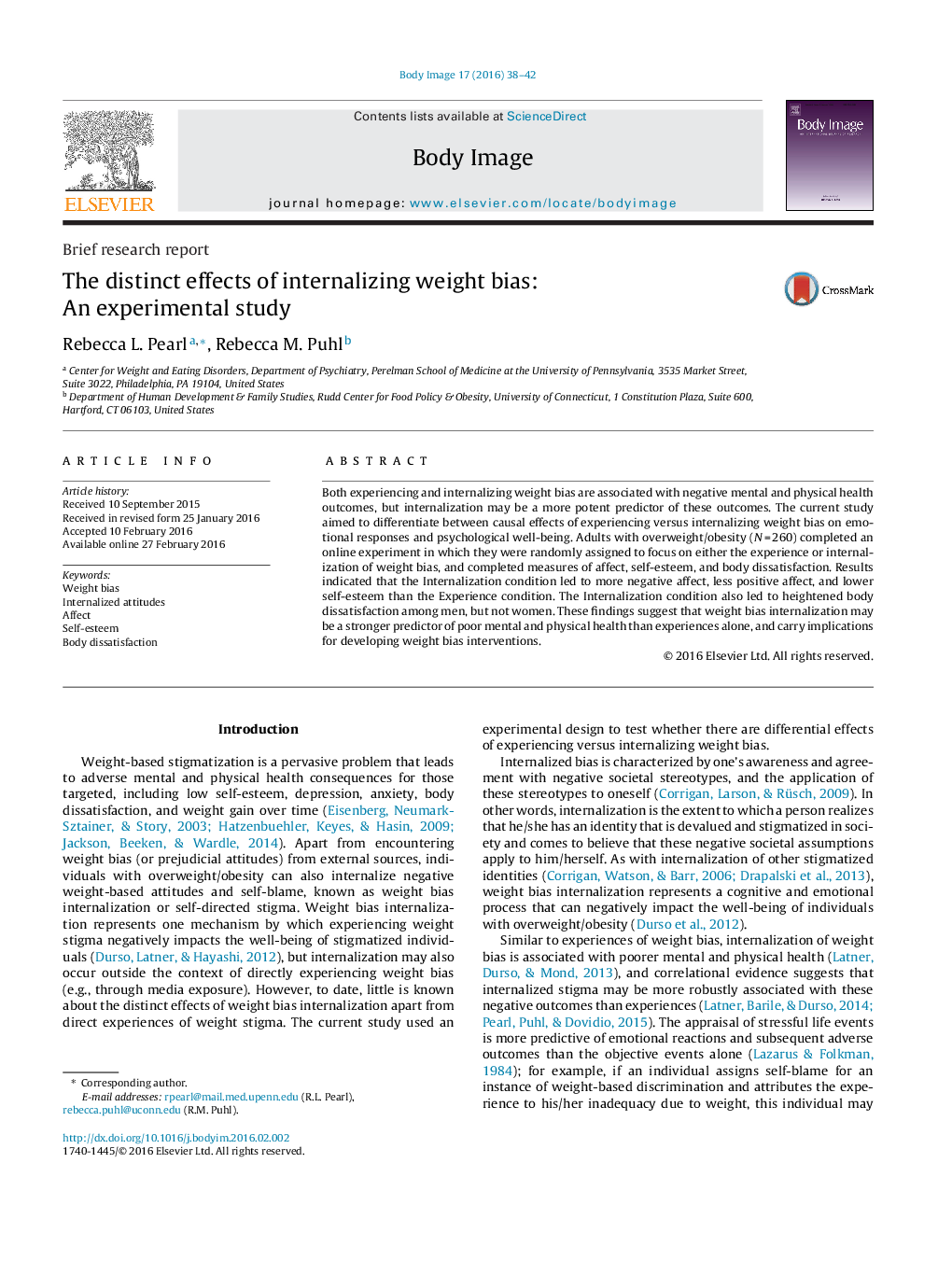| Article ID | Journal | Published Year | Pages | File Type |
|---|---|---|---|---|
| 902663 | Body Image | 2016 | 5 Pages |
•Effects of weight bias internalization were stronger than those of experiences alone.•Internalization led to more negative affect, less positive affect, and lower self-esteem.•Sex differences emerged for effects of internalization on body dissatisfaction.
Both experiencing and internalizing weight bias are associated with negative mental and physical health outcomes, but internalization may be a more potent predictor of these outcomes. The current study aimed to differentiate between causal effects of experiencing versus internalizing weight bias on emotional responses and psychological well-being. Adults with overweight/obesity (N = 260) completed an online experiment in which they were randomly assigned to focus on either the experience or internalization of weight bias, and completed measures of affect, self-esteem, and body dissatisfaction. Results indicated that the Internalization condition led to more negative affect, less positive affect, and lower self-esteem than the Experience condition. The Internalization condition also led to heightened body dissatisfaction among men, but not women. These findings suggest that weight bias internalization may be a stronger predictor of poor mental and physical health than experiences alone, and carry implications for developing weight bias interventions.
